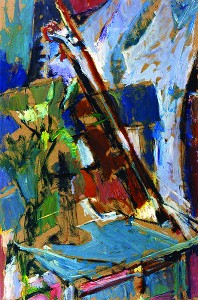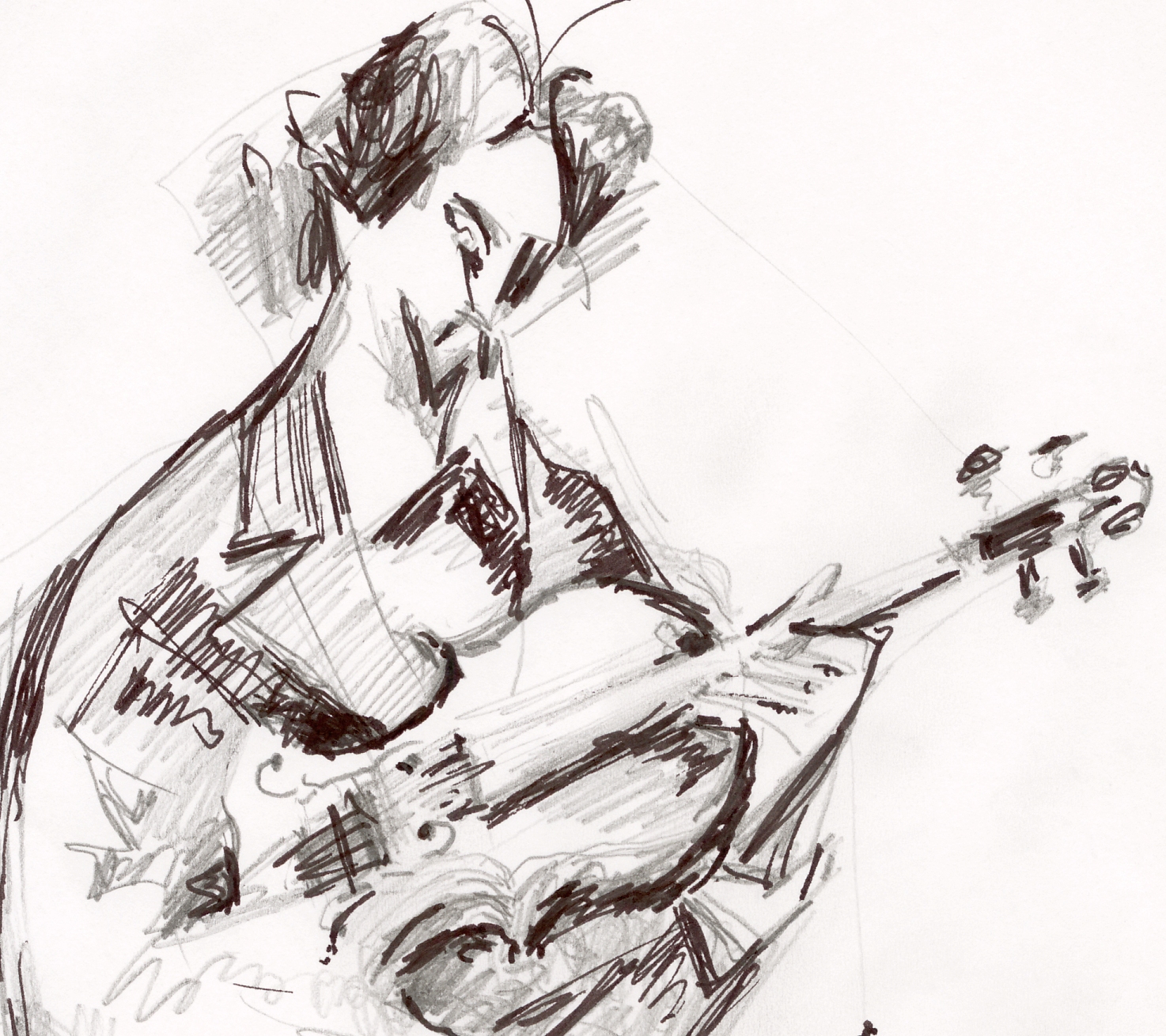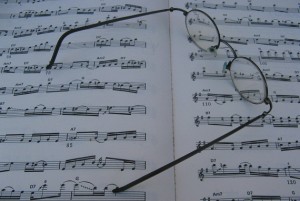Am I really too old to start playing music?

The idea that people should start to play an instrument at a tender age if they want to stand a chance in music, is a by-product of the musical rat race. Only a competitive environment will actually care about how young you were when you started, or how many hours you’ve spent practicing scales. It all boils down to myth. The myth needs to talk about someone who was deprived of all childhood pleasures in the past, and that he/she has spent thousands of hours of patient practicing, so that you are now lucky enough to listen to this great musician. This is a convenient process through which we all inflate our egos. However, music should be all about having a normal life and leaving our little vanities aside. The notions of the ‘lost train to success’ and ‘hard work’ have shaped our conceptions about playing, learning and teaching music. They are the great obstacles between us and the enjoyment of music.
Lost the train?
 When my father took me by the hand to the conservatory to study classical violin a man at the information desk told him that I was too old to start violin lessons. I was almost 12 years old. Fortunately, my father ignored his stupidity, so here I am, against his suggestions. This attitude has led countless people to forget about their pursuits in music. Music schools like this of course do not care about creating musicians. They care about creating professionals who will take care of their school reputation in the future. So when he told my father that I was too old to start, he basically meant that I was too old to become a professional. His words suggest 2 more things: 1) anyone who wants to play music has to begin earlier than that 2) my father has been irresponsible to let me play with my toys, while he should have been discussing with me what I want to do with my life when I was 5. Within this mental framework very little freedom, courage and creativity can survive.
When my father took me by the hand to the conservatory to study classical violin a man at the information desk told him that I was too old to start violin lessons. I was almost 12 years old. Fortunately, my father ignored his stupidity, so here I am, against his suggestions. This attitude has led countless people to forget about their pursuits in music. Music schools like this of course do not care about creating musicians. They care about creating professionals who will take care of their school reputation in the future. So when he told my father that I was too old to start, he basically meant that I was too old to become a professional. His words suggest 2 more things: 1) anyone who wants to play music has to begin earlier than that 2) my father has been irresponsible to let me play with my toys, while he should have been discussing with me what I want to do with my life when I was 5. Within this mental framework very little freedom, courage and creativity can survive.
Of course we all know that there are dozens of great musicians who started much later than that. We also know that not everyone wants to become a professional. What we don’t know and fully understand though, is the nature of the process of learning, internalizing knowledge and developing musical skills. This feeling of awe is very often clear in the eyes of classical musicians when they come across the instrumental skills of a folk musician for example, who has never received any tuition or practiced a single scale. What we are dealing with is a process that is highly complex, non-linear, and certainly not to be explained comprehensively in quantitative terms. Being aware of this complexity is the only way to be simple and effective in our pursuits.
No pain no gain?
 The hard work myth suggests that people have to go through some kind of boring, tiring and unmusical training before they can actually start enjoying music. Usually people imagine going through such ordeal at a younger age when they supposedly have more patience and time to loose. So the idea of long training adds to the overall discouragement. The quantification of practicing is part and parcel of this approach. We very often hear that someone practices 4 or 8 hours a day. However, having spent 8 hours a day with our instruments in our hands says nothing really about the quality of our practice. On the contrary, we might be training to play carelessly and irresponsibly for 8 hours and then take pride in our military discipline. Spending time with our instruments is not beneficial by definition. By the same token, leaving our instruments alone for a period of time can be useful or even necessary.
The hard work myth suggests that people have to go through some kind of boring, tiring and unmusical training before they can actually start enjoying music. Usually people imagine going through such ordeal at a younger age when they supposedly have more patience and time to loose. So the idea of long training adds to the overall discouragement. The quantification of practicing is part and parcel of this approach. We very often hear that someone practices 4 or 8 hours a day. However, having spent 8 hours a day with our instruments in our hands says nothing really about the quality of our practice. On the contrary, we might be training to play carelessly and irresponsibly for 8 hours and then take pride in our military discipline. Spending time with our instruments is not beneficial by definition. By the same token, leaving our instruments alone for a period of time can be useful or even necessary.
A few years ago I did an experiment. I organized free improvisation sessions in which I invited friends of mine who did not play any musical instrument. We had three keyboards. I played on one and two of my friends on the other two. I had no experience playing piano myself so I just used my ears and taste to come up with ideas. I tried to play something meaningful like a pattern or a chord and then I challenged the other two to find a way of interacting with me. I can honestly testify that we were amazed at our hidden ability to create tension and release, harmonies, and even finish our improvisations right on time. At the end of one session one of them wondered: Was it me playing like that?
If humans can actually enjoy their experimentation with sounds without having any prior experience in playing, can you imagine the potential results of focused, adult, close examination of things? I strongly believe that if you start playing an instrument at the age of 30 let’s say, the combination of strong adult motive, genuine interest and basic adult intellectual analysis will very soon produce a mature and advanced musician. I like to think of progress as something that grows quietly and naturally during the process of enjoying. So let’s stop chasing progress and let it follow us while we have fun. Above all, my experience with my friends definitely proves that the feeling of hard training is not a prerequisite for the enjoyment of music. Are 30, 40 or even 60-year old people actually incapable of having fun? Who is willing to take responsibility for a no here?
So why people think otherwise?
What has happened with time is that the fallacies and assumptions developed in the world of ‘geniuses’, authorities and antagonism have leaked into the world of pure curiosity, enjoyment and play. The classical world of performance and educational philosophy are highly responsible for these fallacies and misconceptions. In my opinion they represent the most hierarchical, stressful and antagonistic musical environment. They are the natural habitat of the ‘lost train’ and ‘hard work’ concepts. In his book Musicking Christopher Small pointedly says that it is an environment where one wrong note can actually cost you a career. We don’t need such values in our lives. We need more people playing music!
If you found this post helpful and inspiring, the smallest contribution will encourage the author to continue writing and sharing his ideas.

